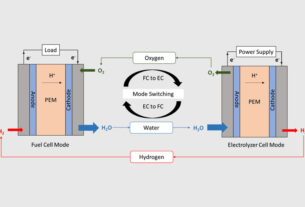United Kingdom – Heriot-Watt University and Petronas, Malaysia’s largest energy company, have inked a £1 million research agreement to work together to find effective ways to make hydrogen from biomass waste.
The project will improve systems for producing hydrogen using thermochemical processes from biomass and other waste items. The key barriers to the use of hydrogen as an alternative energy source—scalability and storage—will also be addressed by researchers.
The project is a collaboration under the Petronas Centre of Excellence in Subsurface Engineering and Energy Transition (PaceSet), one of three global technology centres the company and its academic partners developed to advance low-carbon and environmentally friendly energy solutions. PaceSet is located at Heriot-Watt University in Edinburgh.
Focus on hydrogen
The project will first create new technologies to process and create hydrogen from various biomass waste products as a step toward a circular economy and to produce more hydrogen than is currently feasible using current production methods.
The first focus of the study will be the production of hydrogen utilizing the estimated 127 million tonnes of agricultural waste generated annually in Malaysia and the anticipated four million tonnes of waste and byproducts generated by distilleries in the UK. Additionally, the study team will examine ways to store pure hydrogen without stabilizing it with natural gas utilizing old oil wells that have been depleted of their oil.




